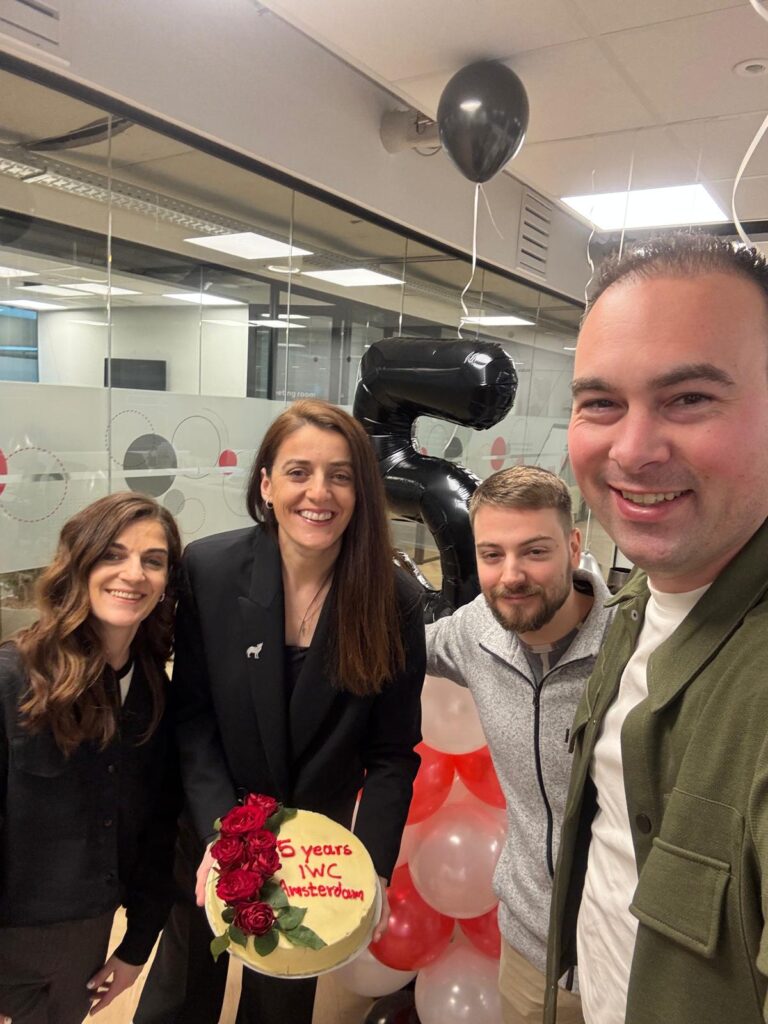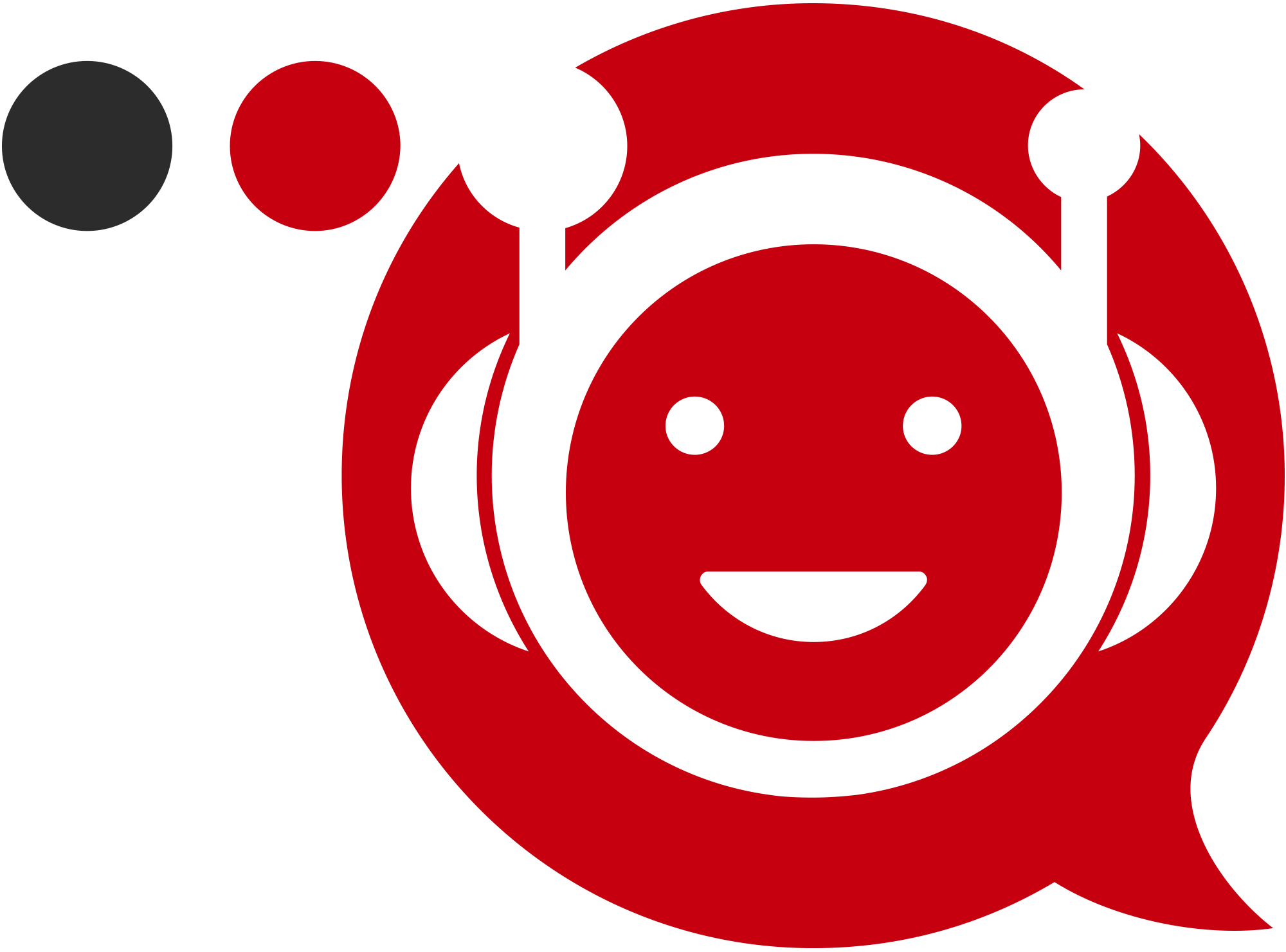In this interview, Simona shares how her hands-on mindset, commitment to client success, and embrace of emerging technologies are shaping ⋮IWConnect’s future in Europe. Simona’s path from integration developer to leading ⋮IWConnect’s European business in Amsterdam reflects our core values: technical excellence, continuous learning, and putting people first. Her experience shows how a strong foundation in technology, combined with a commitment to empowering teams, drives sustainable growth and innovation. In this interview, Simona discusses how her hands-on approach, focus on client success, and embrace of new technologies are shaping ⋮IWConnect’s future in Europe.
You started with integration and now lead our European side of the business. What did that shift teach you about leadership and growth?
The transition from integration to leading the European side of the business has been a profound lesson in adaptability and scale. In my early days working on dev projects, I focused on connecting systems to solve technical puzzles—something I still love, given my passion for using technology to tackle tough problems.
Leadership, however, taught me that growth isn’t just about solving for efficiency; it’s about empowering people and building a vision. I learned to balance technical precision with strategic thinking, much like an entrepreneur scaling a startup—an area I’m deeply inspired by through biographies of history’s best. Obsessing over solving a tough problem for a customer was, and still is, the drive for me—and everything else is learning by doing.
How has your experience with integration shaped the way you build and manage teams?
My integration dev experience fundamentally shapes how I build and manage teams today. In integration, success depends on making disparate systems work as one—teams are no different. I prioritize skills, ensuring everyone’s strengths align toward a common goal, much like syncing tech components.
Encouraging a problem-solving culture is very important to me, inspired by my love for resolving challenges with technology, where team members feel empowered to experiment and innovate. The approach is hands-on yet trusting—giving teams the tools and freedom to excel while staying attuned to bottlenecks. The mindset is try and fail until you succeed—but you persevere and never quit. If that’s not a culture you want to be part of, that’s okay. Mistakes are something I embrace—they’re still the best way to learn.


What’s different about leading a company in Amsterdam compared to working as a developer?
Leading a company and working as a developer are vastly different, while at the same time, I remain the same person. As a developer, I was deep in the code, crafting solutions line by line, very focused on the task at hand—but always curious about the “why” behind it.
Curiosity, no matter the task, is what shaped me. Today, it’s more about orchestrating the bigger picture: market trends, client needs, and team dynamics all come into play. Unlike the focused scope of development, leadership requires zooming out to identify opportunities and taking time to reflect. But in the end, it all comes down to the same goal—solving problems for our customers through innovation and out-of-the-box thinking.
You’re part of this year’s European Women in Technology. Why is it important for you to be there, and what impact do you hope to have?
Being part of European Women in Technology is a privilege and a responsibility. It’s important to me because it’s a chance to amplify that everyone who is genuinely interested in tech can be successful in it. As someone who’s climbed from technical roles to leadership, I want to show other that is possible, and if I can enable only one woman to change her life and have the courage to grow, my mission is accomplished. My journey mirrors the entrepreneurs I admire in biographies—resilient, problem-solving, and bold. I hope to inspire and mentor, sharing practical insights on using technology to break barriers. It’s also personal: advocating for skills over how you look, dress and where are you from, with my values and my work at ⋮IWConnect, where I aim to build teams that reflect the world we serve.

As AI becomes part of more workflows, how do you see it changing integration work—and what should teams focus on?
AI is transforming integration work by automating the mundane and elevating the complex—which is something that excites me as a tech enthusiast. It can handle repetitive tasks like data mapping or error checking, freeing teams to focus on solving bigger problems.
Teams should focus on mastering AI tools, upskilling in areas like machine learning, and staying creative in leveraging these tools in their daily work. One of our partners, SnapLogic, is a pioneer in AI for integrations. Their Agentic AI approach is incredibly inspiring. It changes how we see integration—not just as moving data in and out, but manipulating it through LLMs and building agents within minutes. That’s always been the end goal of integration tools: enabling rapid development.
The key is adaptability—understanding AI’s potential and embedding it naturally, just like I’ve always approached technology.


What’s next for ⋮IWConnect – Amsterdam, and where do you see the biggest opportunities?
For ⋮IWConnect – Amsterdam, the future is about growth through innovation. We’re poised to expand our European presence by delivering cutting-edge integration solutions—think AI, cloud tech, data and beyond—to solve real client problems. We are investing quite a lot in how to help and educate our customers to cut costs, be more efficient, grow, transform them and make sure they are successful, that is what wakes me up every day and work around the clock. This still is our goal, make our Client’s successful and then results will come on its own.

